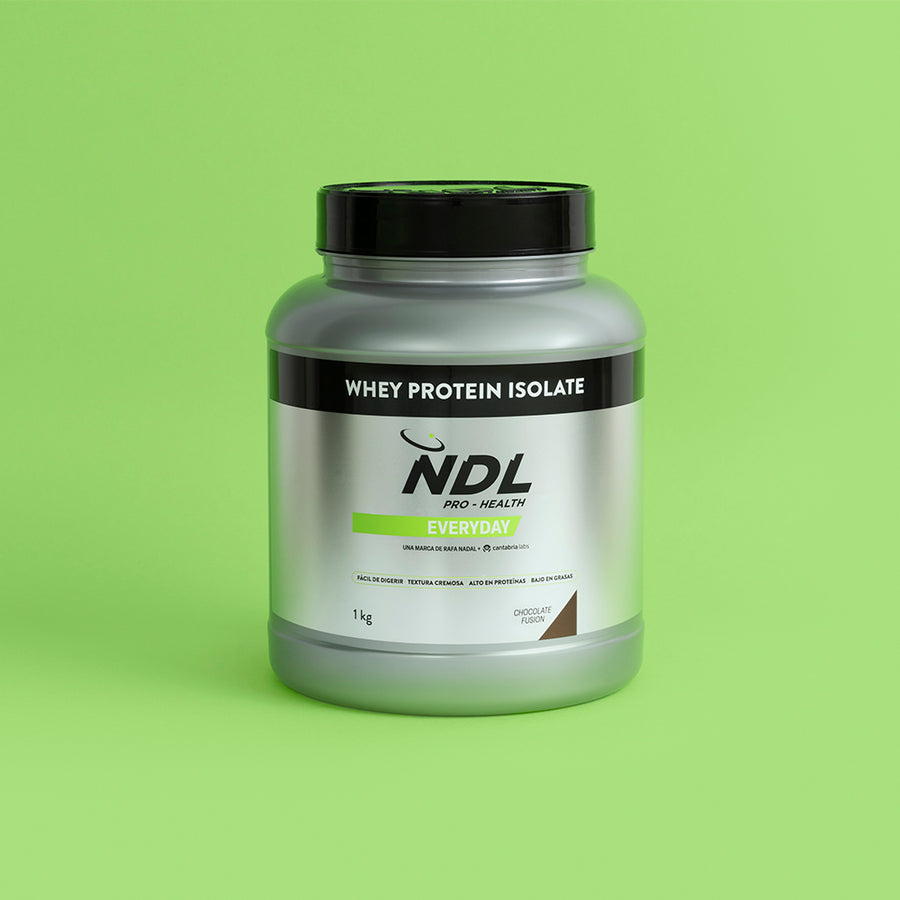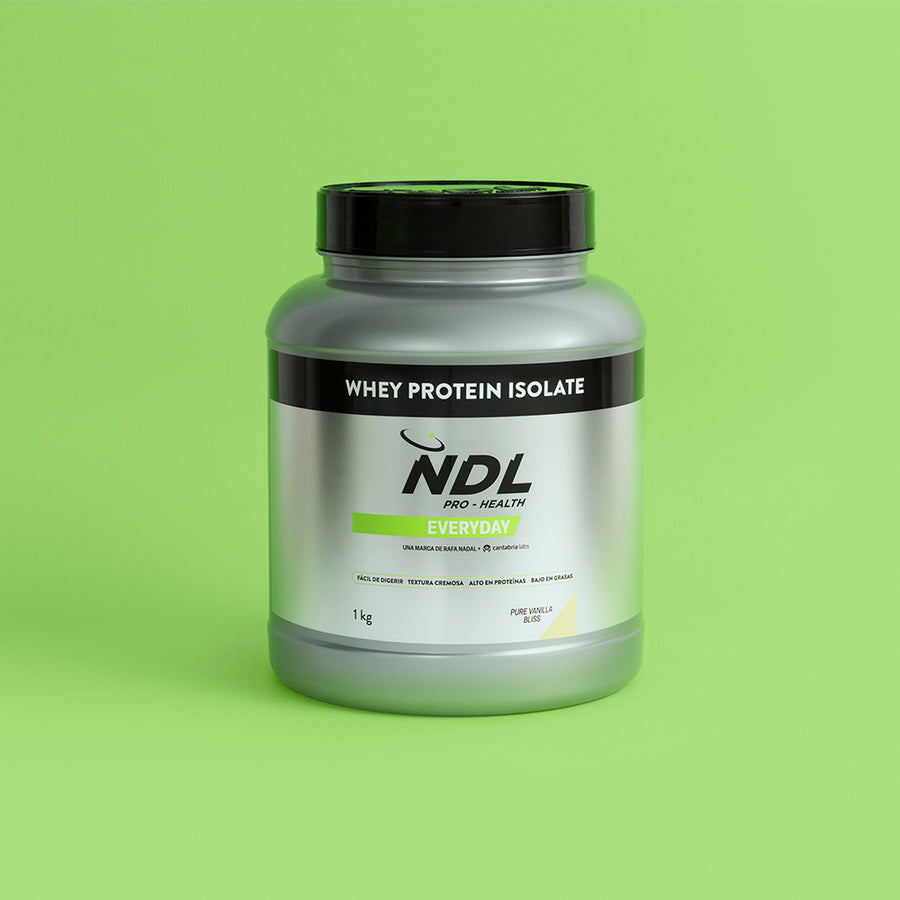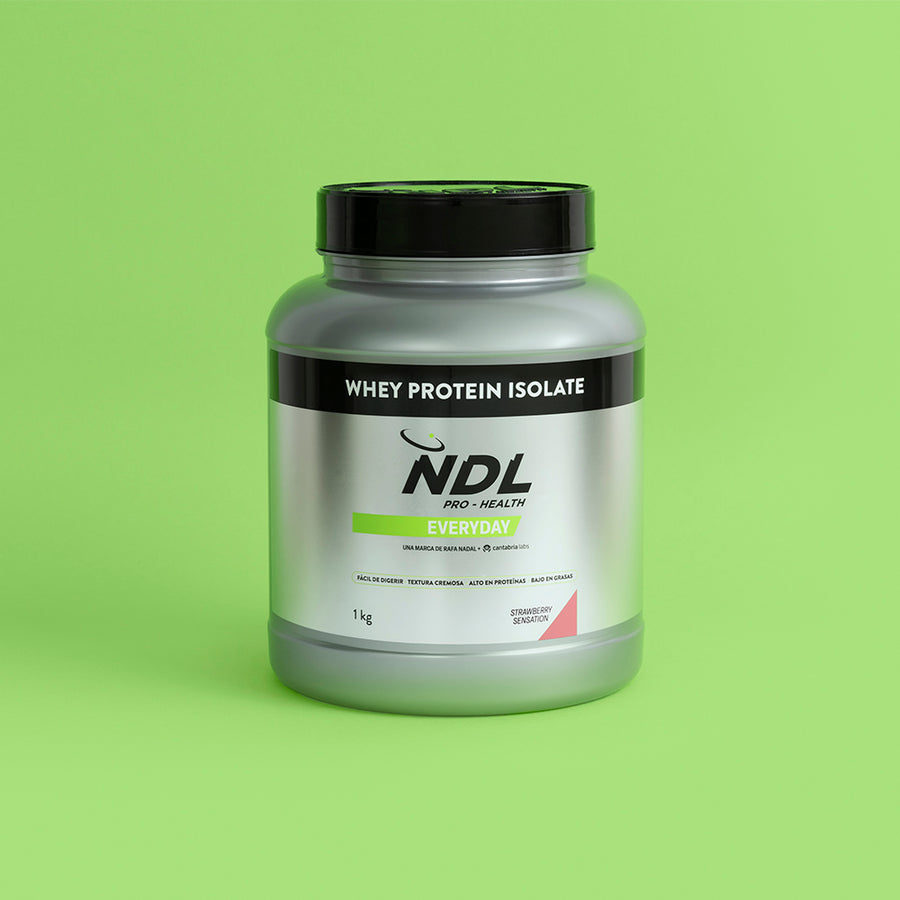Featured Products

Whey Protein Isolate
See product
Whey Protein Isolate Pure Vanilla Blis
See product
Whey Protein Isolate Strawberry Sensation
See productProtein supplements have gained significant popularity in the world of fitness and sports nutrition due to their ability to support muscle recovery, promote growth, and improve physical performance.
These products, in forms such as powders, bars, and shakes, are valued for their convenience and for providing a quick and accessible source of high-quality protein. As more people adopt active lifestyles and focus on muscle building and fat loss, protein supplements have become a key ally in achieving health and performance goals.
Within sports nutrition, the two most common proteins are casein and whey protein. Both are derived from milk but have distinct characteristics and benefits.
Casein is a slow-digesting protein that provides a steady supply of amino acids to the body, making it ideal to take before bedtime or during extended periods without eating.
Whey protein, on the other hand, is fast-absorbing, making it an excellent choice for post-exercise consumption as it helps with immediate recovery and muscle growth.
What is Casein?
Casein is a high-quality protein predominantly found in milk, representing around 80% of its protein content. It is obtained as a by-product during cheese production, when enzymes coagulate the milk and separate casein from whey.
One of the main benefits of casein is its slow digestion, which allows a sustained release of amino acids into the bloodstream over several hours. This makes it an excellent option for keeping the body in an anabolic state, especially overnight or during prolonged periods without food.
Key benefits include:
- Muscle maintenance and growth: The prolonged release of amino acids supports recovery and muscle preservation.
- Reduction in catabolism: Its slow absorption helps prevent muscle breakdown, particularly during fasting periods.
- High glutamine content: An amino acid that strengthens the immune system and aids in muscle recovery.
Casein is valued in sports nutrition for its ability to nourish the body consistently and over a long period, making it an ideal supplement for those looking to optimize recovery and muscle maintenance.
What is Whey Protein?
Whey protein is one of the most popular proteins in sports nutrition, derived from milk whey, which is the liquid separated during cheese production. It represents approximately 20% of milk's protein content and is highly valued for its rapid digestion and absorption.
Its standout properties include:
- Rapid absorption: Being quickly digested and absorbed, it is ideal for post-workout consumption when the body needs an immediate source of amino acids to repair and build muscle.
- Complete amino acid profile: It is a complete protein, meaning it contains all essential amino acids the body cannot produce on its own, including a high content of BCAAs (branched-chain amino acids), crucial for muscle recovery.
- High bioavailability: This means that a large proportion of the protein consumed is effectively used by the body.
Key benefits of whey protein include:
- Improved muscle recovery: Its rapid digestion and high content of essential amino acids and BCAAs promote quick muscle repair and growth after exercise.
- Increased protein synthesis: It supports the anabolic process, helping to increase muscle mass.
- Immune system support: Whey contains immunoglobulins that aid in immune function.
Because of these properties, whey protein is widely used by athletes and active individuals to maximize training results and maintain proper nutrition.
Casein vs. Whey Protein Comparison
Below is a table highlighting the differences between casein and whey protein:
| Features | Casein | Whey Protein |
|---|---|---|
| Absorption Rate | Slow (7-8 hours) | Fast (1-2 hours) |
| Amino Acid Profile | Complete, high in glutamine | Complete, high in BCAAs |
| Texture and Flavor | Thicker, milder taste | Lighter texture, varied flavors |
| Ideal Purpose | Muscle maintenance and nighttime use | Post-workout recovery and growth |
When to Choose Casein?
Casein protein is the ideal choice when a slow-releasing protein source is needed, making it especially useful in situations where the body will go for an extended period without nutrients. This is because casein digests and absorbs gradually, providing a constant flow of amino acids into the bloodstream for several hours (up to 7-8 hours).
The best occasions to choose casein include:
- Before bed: During sleep, the body goes without food for a long time, so taking casein before bedtime ensures a continuous supply of amino acids, helping to prevent muscle catabolism (muscle breakdown) and promoting overnight recovery.
- During prolonged fasting: If you know you won’t be able to eat for several hours, casein is an excellent option to maintain a more prolonged anabolic (muscle-building) state and avoid muscle loss.
- During muscle maintenance phases: If your goal is to preserve muscle mass, especially during fat loss or when caloric intake is low, casein helps prevent muscle breakdown by nourishing the body sustainably.
Therefore, choose casein when your goal is to maintain a continuous release of protein over time, such as at night or during times when frequent eating is not possible.
When to Choose Whey Protein?
Whey protein is the ideal choice when a fast-absorbing protein source is needed, especially in situations where the body requires nutrients immediately. Since whey protein digests in just 1-2 hours, it is highly effective at promoting recovery and muscle growth at critical times.
The best occasions to choose whey protein include:
- After workouts: After a workout session, muscles are in a catabolic state (muscle breakdown) and need amino acids quickly to initiate recovery and protein synthesis. Whey provides a rapid supply of amino acids, especially BCAAs (branched-chain amino acids), crucial for muscle repair and growth.
- As a quick protein source: If you need a quick intake, for example, as a light meal or snack between main meals, whey is a convenient option. Its rapid digestion helps efficiently meet protein needs.
- To increase muscle mass: If your goal is muscle growth, whey protein is highly recommended due to its rapid absorption and complete amino acid profile. It is ideal for maximizing protein synthesis when combined with a strength training plan.
- Before or after competitions or intense sports activities: Whey is useful when quick muscle recovery is needed, facilitating performance in subsequent activities.
Based on these facts, choose whey protein when you seek rapid recovery after exercise, need an immediate protein source, or want to maximize muscle growth in a short period.

Can I Take Both Proteins?
Yes, it is possible to take casein and whey protein simultaneously, and in fact, combining both proteins can offer certain benefits depending on your goals.
The benefits of combining both proteins include:
- Immediate and long-term recovery: Taking both proteins together can provide both a quick source of amino acids for immediate recovery (whey) and a sustained source that will nourish the muscles longer (casein).
- Optimization of protein synthesis: Whey stimulates protein synthesis quickly, while casein ensures this process remains active over a longer period, maximizing anabolic benefits.
- Support during different phases of the day: This combination is especially useful if you’re in a situation where you can’t eat for several hours after a workout, as whey meets immediate needs, and casein protects your muscles over time.
In summary, taking casein and whey simultaneously is a viable strategy that can offer an advantage for both quick recovery and long-term muscle preservation.
Which is Better Based on Your Goals?
Building Muscle Mass
Both whey and casein protein can be effective for building muscle mass, but whey protein is usually preferred for this purpose, especially around workouts for several key reasons: Its rapid absorption, high leucine content—one of the most important amino acids for stimulating muscle protein synthesis—and its effectiveness in the post-workout environment make it ideal for consumption immediately after exercise.
For Weight Loss or Definition
Casein is the best option because it provides greater satiety and digests slowly, keeping you full for longer, helping control hunger and avoiding overeating, a key aspect of weight loss. By releasing amino acids gradually, casein is effective at preserving muscle mass in a caloric deficit. By not causing rapid insulin spikes like whey, casein helps maintain stable blood sugar levels.
To Improve Athletic Performance
Whey protein is generally the best choice. This is due to its rapid digestion and absorption, making it particularly useful at key moments for athletic performance, such as before or after exercise.
This is because of its ability to be absorbed quickly and help with post-workout recovery and muscle growth.
In conclusion, both casein and whey protein offer unique benefits, and your choice will depend on specific goals, as discussed above.
Whey protein is ideal for those seeking quick recovery and maximizing muscle growth due to its rapid absorption, especially after exercise.
In contrast, casein is better suited for those aiming to preserve muscle mass during extended periods without food, such as before bedtime, and for those looking to control appetite during weight loss. Therefore, the choice between the two depends on whether quick recovery or sustained muscle maintenance is prioritized.

From the NDL Pro-Health team we will provide you with tips to maintain a healthy lifestyle. Sharing knowledge and product recommendations to offer optimal solutions for your daily routine, for your workouts and subsequent recovery, all with the goal of helping you achieve physical and mental wellness.

















